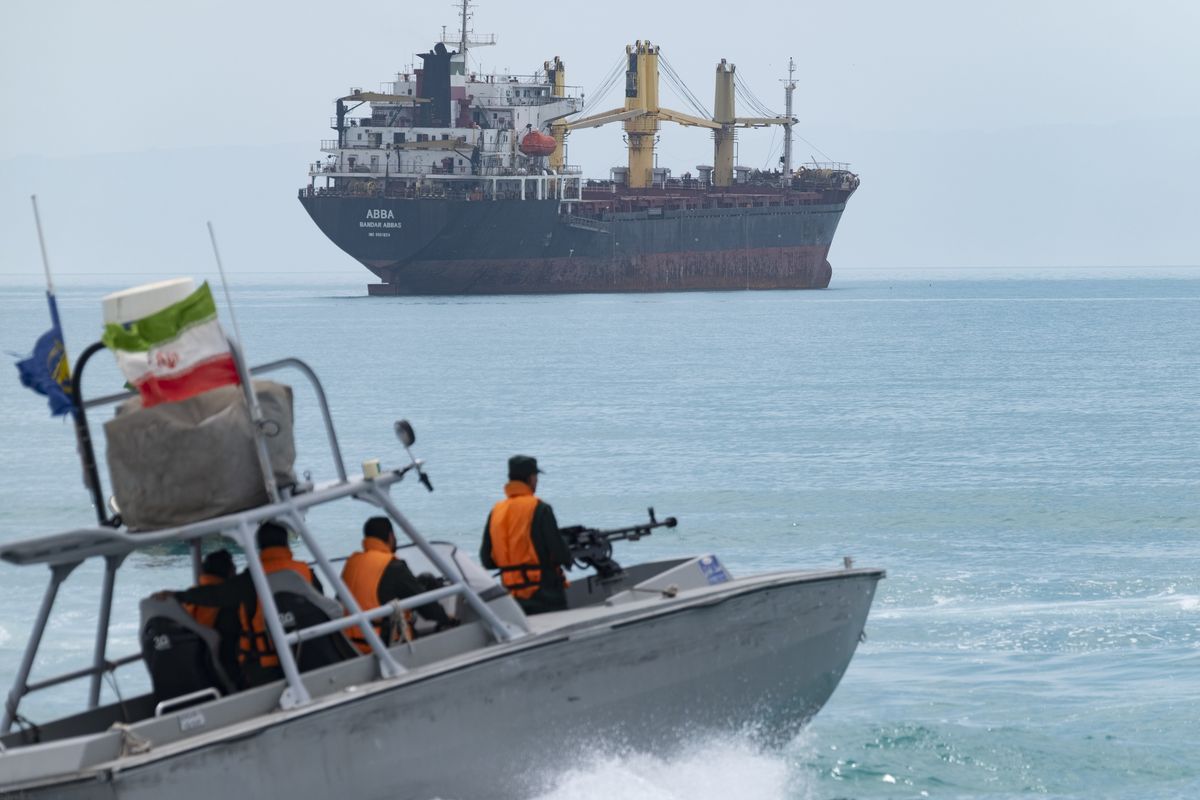The upcoming internal Hamas elections, which will be conducted over a number of months in a secretive, phased process, will take place in a radically altered regional landscape. In 2013, when Hamas – the Palestinian offshoot of the Muslim Brotherhood – conducted its last elections, it seemed to be on the winning side of regional dynamics. Egypt was ruled by a Muslim Brotherhood president (Mohamed Morsi), its patrons in Qatar and Turkey were at the center of regional politics, and the tensions between Iran – Hamas’ military backer – and Arab Gulf states were far from their current level of intensity.
But what seemed like a winning trajectory in 2013 has turned into a political dead end. The leaders of Egypt who replaced the Muslim Brotherhood, including President Abdel Fattah al-Sisi, are deeply antagonistic towards Hamas. The regional influence of Qatar and Turkey has been drastically reduced, and the rise of political Islam has been replaced by the growing tensions between Iran and the so-called Arab Sunni camp led by Saudi Arabia.
The election of new Hamas leadership could theoretically provide the movement with an opportunity to reset its regional alliances. Yet the rivalries and competing interests between Hamas’ various components create a dynamic that makes such realignment unlikely.
Currently, Hamas has three key centers of powers, each with its distinct set of interests. Its political leadership in the diaspora, headquartered in Qatar with offices in a number of countries, is headed by outgoing politburo chief Khaled Mashal. It is keenly attuned to regional dynamics and gets much of its power through its ability to muster regional political and financial support. Hamas’ political leadership in Gaza, led by former Hamas Prime Minister Ismail Haniyeh, derives its power from its control over territory and population in the coastal strip and is sensitive to developments therein. Hamas’ military wing, the Ezzedeed al-Qassam Brigades, is focused on building its armament and capabilities mainly in Gaza but also in the West Bank.
In addition to competing interests, there are personal political rivalries between political leaders in the diaspora and those governing Hamas in Gaza. More recently, the military wing under the new leadership of the influential Yahya Sinwar has also asserted itself politically. None of the three factions is strong enough to impose its will on the others, and their rivalry has made it difficult for the movement to make the necessary decisions to keep up with regional changes.
Hamas faces two key regional challenges: repairing its relations with Egypt and widening its regional base of support while navigating Iran-Saudi tensions.
Egypt’s indispensability for Gaza was clearly demonstrated during the 2014 hostilities between Hamas and Israel. The Qassam Brigades, having suffered significant losses at the beginning of the conflict, and the Gaza political leaders, witnessing high civilian casualties and widespread destruction of infrastructure, were inclined to accept a ceasefire proposed by Egypt on July 14. But the Qatar-based diaspora leadership refused the proposal, hoping that Turkey and Qatar would get better terms from Israel (and, in the meantime also return to the center of regional diplomacy). In the end, these efforts failed and the Qassam Brigades and the Gaza leadership accepted the Egypt-brokered ceasefire on August 26, overruling the diaspora leadership.
Today, the Gaza political wing has an interest in repairing relations with Egypt as the country represents Gaza’s main gateway to the outside world. However, due to tensions with Hamas and the Muslim Brotherhood at large, Egypt has sealed off its borders with the coastal strip. This has directly hurt Hamas’ leadership by eliminating the income they had received from taxing smuggling tunnels along the border with Sinai. Additionally, the closure of the Rafah border crossing effectively cut off Gaza’s 1.8 million residents from the outside world, creating a disaffected population unhappy not only with Egypt but also Hamas.
But Egypt is only willing to engage Hamas if it meets certain demands. Among these are security demands. Egypt asserts that Hamas’s military wing is assisting Jihadi groups waging a terror campaign against Egyptian authorities in Sinai and has demanded that such assistance stops. It also demanded that Hamas hands over members of the Qassam Brigades, identified by name, accused of assisting these groups. This demand pits the organization’s political wing in Gaza against the Qassam Brigades. The former is unhappy with the Qassam links to Sinai Jihadis but does not have the power to force it to comply. For example, last week Mahmoud Zahhar, a senior Gaza political leader, was pressured by the military wing to retract a previous claim that Hamas foiled a Jihadi plot against Sinai. Until further notice, the chances of improved relations with Egypt are blocked by the interest of Hamas’ diaspora leadership and military wing.
Given the difficulties of mending fences with Egypt and the receding importance of Qatar and Turkey, Hamas has set its sights on the other Arab center of gravity, Saudi Arabia. Getting closer to the Saudi orbit would bring diplomatic and financial benefits and would relieve the stigma of the Sunni Hamas movement being backed by Shi’a Iran at a time of heightened sectarian tensions throughout the Middle East. Yet despite these benefits, competing Hamas interests have stymied this rapprochement. Saudi’s primary concern today is countering Iran’s aggressive regional posture. Filtering Hamas’ request for better relations through this lens, Riyadh requested that the movement sever its relations with Iran. Hamas’ political wings were inclined to respond positively, given that their relations with Iran soured after 2012 when they were expelled from Syria, where they had been based since 2001, for refusing to support President Bashar Assad. But once again, the Hamas military wing cast a veto. From their perspective, Iran offers what no other backer can, namely arms, know-how, and military and terrorist training. Despite initial signs of thawing, Hamas’ relations with Saudi are once again frozen.
In the coming months, Hamas will elect a new leader and a new politburo for the whole movement. Despite the show of unity that the movement will try to project, the new leadership will still have to contend with tensions within its ranks. These tensions are not only based on competing personalities, but also on competing, and in some cases conflicting, structural, deep-rooted interests. There are no indications that these interests are on their way to being reconciled. Nor are there indications that one of the movement’s components, be it the diaspora leadership, the Gaza leadership, or the military wing, is emerging as a clear leader. For the foreseeable future, Hamas will remain unable to make the kind of decisions it needs to break its regional isolation.












